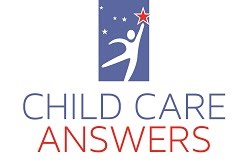'Laughter yoga' delights local daycare
By Susan Gibbs
Published: January 07, 2011
Youngsters at the Haney-Ripley Child Care Center in Stanardsville got their laughs on last Thursday.
"Laughter is good for you," instructor Shannon Brown told the boys and girls. "It helps the brain clean up so you can think better and it cleans the blood so you feel better."
In fact, according to the Laughter Yoga International's website, "laughter yoga" combines unconditional laughter with yoga breathing to combine physical exercise (laughter) with deep diaphragmatic breathing (yoga).
The website further explains that laughter is easily stimulated in a group when combined with eye contact, childlike playfulness and laughter exercises - where fake laughter quickly becomes real, and contagious.
Brown proved it was so when she gathered the children around her in a circle, looking each in the eye and starting to laugh. Before long most all the children - and center owner Nancy Haney - were unable to contain their own laughter.
As an exercise routine, laughter yoga is a complete wellbeing workout, according to the Laughter Yoga website.
Clinical research has proved that laughter lowers the level of stress hormones in the blood, and so fosters a positive and hopeful attitude. Participants report significant general health improvements.
Many have felt a reduction in the frequency of respiratory infections like common cold and flu, and some others reported overcoming depression, and relief or even freedom from chronic medical problems.
Also according to the website, the phenomenon was launched in early 1995 by a handful of people in a park. Today, there are more than 6,000 social laughter clubs in about 60 countries.
Laughter yoga has been introduced in schools, in the business world, in aged care facilities, in hospitals - where it has proven to have a profound impact on the immune system that influences the course of survival of cancer patients - and in prisons, where it has led to better prisoner-staff relations and reduced violence.
Not that the youngsters at the center knew any of that - they were just having fun, which, according to Haney, is the focus of the center.
"But at the same time, we provide a positive, effective and educational environment," Haney said. "Laughter yoga was done instead of a field trip, for those children who spent time with us during Christmas break."
Haney said that the field trips Haney-Ripley children have taken include visits to the Greene County Park, Greene County Library, Greene County Senior Center, Evergreene Nursing Care Center, Green Meadows Christmas Tree Farm, Carter's Mountain and Bounce-n-Play.
And, the center has had visitors from the community.
"A parent who is a professional firefighter visited the center, along with a fire truck, to discuss fire safety, and members of the senior center visited our center and brought candy for our Halloween festival," said Haney.
"Seniors read to children and spent time helping with art activities."
When they are not taking field trips, youngsters enrolled in the center are playing inside with dolls and dollhouses, action figures and trains, listening to stories or reading on their own, Haney explained.
They enjoy "circle time," during which they discuss the month, days of the week, and the season of the year.
They work with teachers on manipulatives and participate in art and music activities.
Or they are playing organized games outside, weather permitting. And, Haney added, they have enjoyed "several bounce castles here at the center."
The Haney-Ripley Child Care Center is a licensed center specializing in before and after school care for K5 through middle school students, and preschool care for the children as young as two years.
It began in August 2007 with 24 students, and now as 67. It also offers full day care for school-agers on days schools are closed, Christmas and spring breaks, and extended school closings.
For more information call the center at (434) 985-1185 or visit it at Haney-Ripley.com.
5 years ago










